Part II of a two-part series, looking at allegations of Rushanara Ali’s record in supporting repression abroad, as the UK Trade Envoy to Bangladesh. Part I on allegations of instigating police action on Pro-Palestine activists in her constituency of Bethnal Green and Stepney can be found here.
Rushanara Ali, UK Government Trade Envoy to Bangladesh (2016 to 2024)
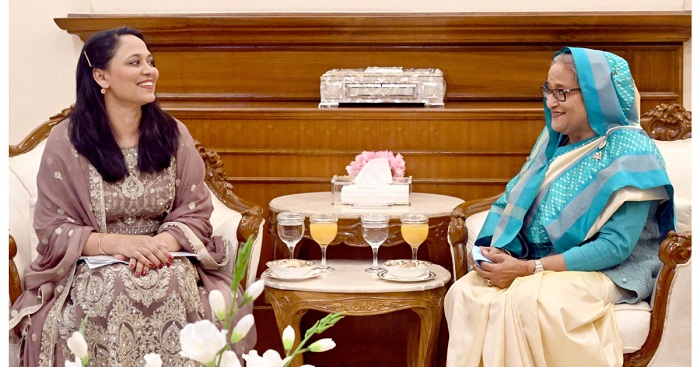
On April 16, 2016, Rushanara Ali was appointed as the UK Government’s trade envoy to Bangladesh by then-Prime Minister David Cameron. Trade Envoys are personally selected by the Prime Minister based on their experience, skills, and knowledge of particular sectors and countries. This appointment was part of a new whole-of-government approach aimed at boosting trade with priority markets and sectors.
At that time, concerns were being raised about the political situation in Bangladesh. The Economist magazine, in an op-ed titled “Despotic in Dhaka” published on May 14, 2016, described the country as sliding towards one-party rule, highlighting growing fears about authoritarian tendencies in the government.
When Ali was appointed, bilateral trade between the UK and Bangladesh stood at approximately £2.3 billion. This figure encompassed a wide range of goods and services. Arms deals, while present, represented only a small fraction of this trade, amounting to around £400,000.
Guns over Butter: Bangladesh is a lucrative arms export market
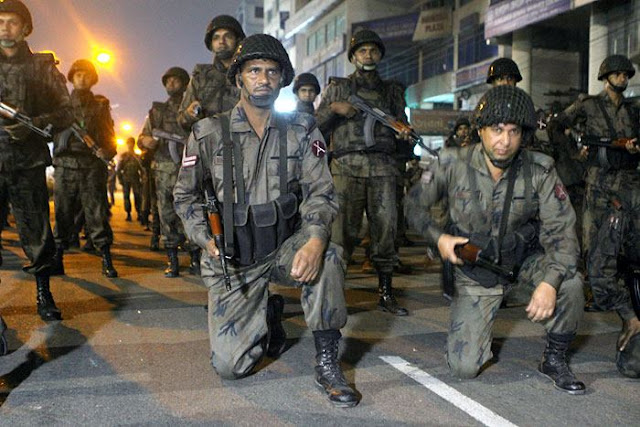
Following Rushanara Ali’s appointment as UK Trade Envoy, arms sales from the UK to Bangladesh increased significantly, reaching £117 million in 2019. This growth in arms exports has raised concerns among human rights advocates.
Dr. Samuel Perlo-Freeman, research coordinator at Campaign Against The Arms Trade (CAAT), expressed alarm over the UK’s continued high levels of arms exports to Bangladesh, given what he described as the country’s “increasingly repressive” government.
In a statement to Byline Times, Dr. Perlo-Freeman said: “The ideal time to have halted arms sales to Bangladesh would have been years ago, as the country’s human rights situation worsened. However, it’s not too late to take action now.”
He highlighted specific concerns about recent arms export licenses, stating: “Particularly worrying is the December 2022 license for exporting 200 sniper rifles for military use, as well as an open license issued in 2022 potentially allowing unlimited quantities of machine guns, artillery, and ammunition to be exported. These licenses are still valid and should be immediately revoked if they remain in effect.”
Repression of School Children and Female Workers: Export of Crowd Suppression Equipment
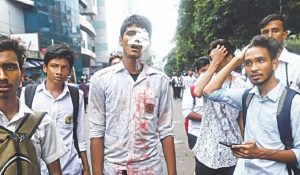
Beyond the growth of arms sales, the UK’s exports to Bangladesh have included crowd-control equipment such as tear gas. These exports have coincided with instances of police actions in Bangladesh and subsequent human rights abuses.
In 2018, Bangladesh witnessed large-scale student protests demanding improved road safety. During these demonstrations, Bangladeshi police reportedly used tear gas to disperse thousands of student protesters.
The following year, in Dhaka, police again employed tear gas, this time against garment factory workers, predominantly women, who were protesting for higher wages. These confrontations resulted in one worker’s death and injuries to dozens more.
Notably, in the same year as these events, the UK approved the export of £40,761 worth of tear gas ammunition to Bangladesh, specifically designated for “military end use”.
This sequence of events has raised questions about the relationship between UK exports and their potential use in managing civil unrest in Bangladesh.
Logistical Support to the Rapid Action Battalion (RAB): The Bangladesh ‘Death Squad’
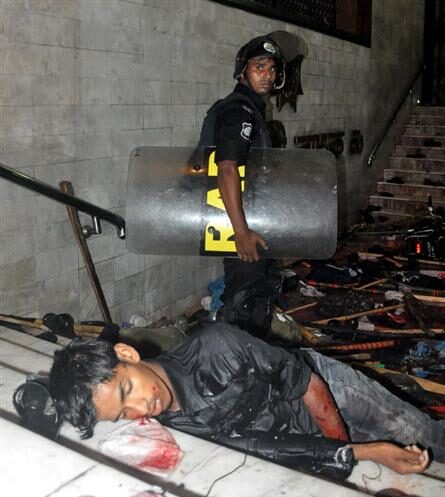
The most troubling episode during Rushanara Ali’s tenure as trade envoy is the complicit support to a paramilitary force in Bangladesh, dubbed by many as a Death Squad. The involvement of the UK with Bangladesh’s Rapid Action Battalion (RAB), a paramilitary organisation, has raised significant concerns.
In October 2020, ten U.S. senators addressed a letter to then-Secretary of State Mike Pompeo and Secretary of the Treasury Steven Mnuchin, urging sanctions against RAB officials. The letter alleged that since 2015, the RAB had been reportedly responsible for over 400 extrajudicial killings, and had been credibly implicated in numerous cases of enforced disappearances and torture.
By 2021, the U.S. Treasury took action, imposing sanctions on several RAB members, citing the organisation as “a foreign entity responsible for or complicit in, or has directly or indirectly engaged in serious human rights abuse.” However, the British Government did not follow suit and refrained from imposing any sanctions against the force.
In 2022, it came to light that RAB members had been invited to the UK on two occasions for training in cybersecurity and mass surveillance equipment. Specifically, they received training in the use of a backpack ‘IMSI catcher,’ a device capable of intercepting phone calls and text messages. This revelation has intensified concerns about the UK’s engagement with an organisation accused of serious human rights violations.
Questions In Bangladesh, Questions in Bethnal Green and Stepney
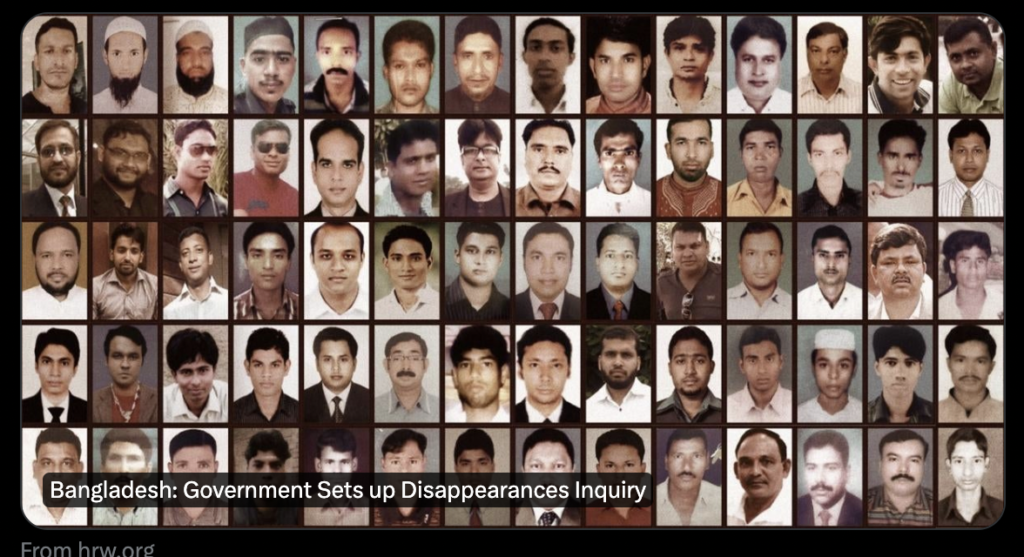
On August 27, 2024, the Bangladesh Government announced the establishment of an independent commission to investigate enforced disappearances from 2010 to 2024. This investigation is expected to uncover the fate of the victims, their treatment while in detention, and the methods and mechanisms employed by security services. Additionally, it will explore the logistical support provided from abroad, including from the United Kingdom.
In Bethnal Green and Stepney, concerns have already been voiced regarding Rushanara Ali’s potential complicity in the ongoing genocide in occupied Palestine and her role in suppressing pro-Palestinian advocacy among her constituents.
Moreover, serious questions must be raised about her silence and complicity in human rights abuses in Bangladesh during her eight-year tenure as the UK Trade Envoy to Bangladesh. During this period, there was an over hundredfold increase in small arms and ammunition exports, the sale of riot control equipment used against students and female workers, and logistical support provided to paramilitary forces, which many have labelled a “death squad.”
Hopefully, next time she’s interviewed by the BBC, instead of defaming legitimate Palestinian advocacy. She could address her silence and alleged complicity in UK support for human rights abuses, including female garment workers in Bangladesh during her eight-year tenure as Trade Envoy, or maybe not.

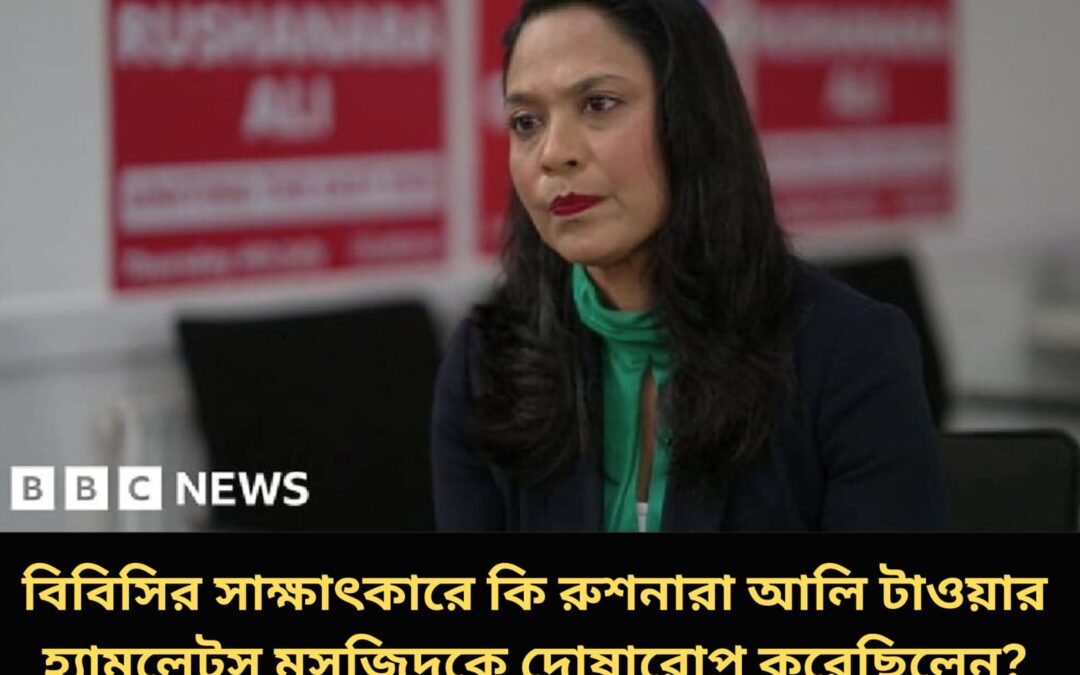
Recent Comments